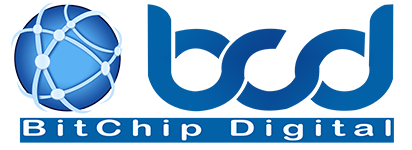
In today’s fast-paced software development environment, businesses are constantly striving to increase efficiency and streamline their processes. One area where this is particularly crucial is in the DevOps pipeline. DevOps is all about collaboration, automation, and continuous integration and delivery (CI/CD). To achieve these goals, organizations often turn to enterprise testing tools, particularly scalable enterprise test automation tools, to enhance their workflows and ensure high-quality software delivery.
In this article, we’ll explore how enterprise testing tools can improve DevOps efficiency, leading to faster releases, better product quality, and more agile development practices.
The Role of Testing in DevOps
Before diving into the specifics of enterprise testing tools, it’s important to understand the role of testing in DevOps. In traditional software development, testing was often a separate stage that came at the end of the development cycle. This created bottlenecks and delayed releases. However, in DevOps, testing is integrated throughout the entire process, with the goal of continuous feedback and rapid iteration.
Testing in DevOps focuses on ensuring that code is validated continuously throughout the development lifecycle, from the early stages of coding to post-production. Automated tests help developers detect and fix issues faster, resulting in more stable applications and a smoother user experience.
What Makes Scalable Enterprise Test Automation Tools Important?
A scalable enterprise test automation tool has a key role in improving DevOps efficiency. Unlike traditional testing methods that may struggle to keep up with rapid development cycles, scalable automation tools are designed to handle the volume, speed, and complexity of modern software environments.
These tools automate the execution of tests across various platforms, devices, and environments, reducing the need for manual testing. This not only saves time but also increases test coverage and improves the accuracy of test results. By incorporating these tools into a DevOps pipeline, businesses can achieve the following benefits:
- Faster Feedback Loops: Scalable test automation tools allow for quick, continuous feedback on code quality, enabling developers to address issues early in the development process. This iterative feedback loop is essential for DevOps teams working to deliver software quickly and reliably.
- Higher Test Coverage: Automated tests can be executed across a wider range of scenarios and platforms, ensuring that all potential issues are addressed. This results in higher test coverage and a reduced risk of bugs slipping through to production.
- Consistency and Reliability: Automated tests are consistent and reliable. Unlike manual testing, which can be prone to human error, automation ensures that tests are executed the same way every time, delivering consistent results.
- Cost Savings: Although there is an initial investment in setting up automated testing, the long-term savings are significant. Automated testing reduces the need for extensive manual testing and minimizes the cost of fixing defects later in the development process.
- Integration with CI/CD Pipelines: Scalable test automation tools integrate seamlessly into CI/CD pipelines, enabling automated tests to run whenever new code is pushed to the repository. This ensures that quality checks are done continuously, preventing defects from making it into production.
How Enterprise Testing Tools Improve DevOps Efficiency
Now that we understand the importance of scalable enterprise test automation tools, let’s dive deeper into how these tools enhance DevOps efficiency:
-
Accelerated Development Cycles
DevOps is all about speed. Enterprises need to release software quickly to stay competitive. Scalable enterprise test automation tools help streamline testing processes by automating repetitive tasks, such as regression testing, which typically takes up a significant portion of manual testing efforts. This frees up valuable developer time, allowing teams to focus on writing new code and developing innovative features. As a result, the development cycle is shortened, and companies can deliver software updates faster.
-
Enhanced Collaboration Between Teams
DevOps is built on collaboration, and enterprise testing tools play a critical role in fostering better communication between development, testing, and operations teams. Automated testing provides a common ground for all teams to collaborate around. Developers can easily access test results and use them to address issues quickly, while operations teams can ensure that tests are executed in production-like environments. This collaborative approach helps ensure that everyone is aligned and focused on delivering quality software.
-
Improved Risk Management
One of the primary goals of DevOps is to reduce risk by catching issues early in the development process. Scalable enterprise test automation tools help mitigate risks by running a wide range of tests across various environments and conditions. By catching defects early, automated tests minimize the likelihood of major issues arising after release, reducing the overall risk to the business.
Additionally, test automation tools often provide detailed insights into test results, making it easier for teams to identify patterns or recurring issues. This proactive approach to risk management helps businesses stay ahead of potential problems, ensuring smoother product rollouts.
-
Better Resource Allocation
Manual testing can be resource-intensive, requiring significant time and effort from testing teams. By automating repetitive tests, enterprises can allocate their resources more effectively. Developers can focus on writing high-quality code, while QA teams can focus on more complex, exploratory testing that requires human expertise. This optimized allocation of resources leads to more efficient use of time and talent, ultimately benefiting the entire organization.
-
Scalability to Handle Growing Demands
As businesses scale and their software environments become more complex, manual testing becomes increasingly difficult to manage. Scalable enterprise test automation tools can handle the growing demands of modern software, enabling businesses to test large and complex applications quickly and accurately. Whether it’s testing on multiple devices, operating systems, or cloud environments, automated testing can easily scale to meet the needs of any enterprise.
Conclusion: The Future of DevOps with Scalable Test Automation Tools
As DevOps continues to evolve, scalable enterprise test automation tools will play an increasingly important role in driving efficiency, collaboration, and quality. By automating repetitive testing tasks, integrating with CI/CD pipelines, and providing valuable insights into software quality, these tools help businesses achieve faster release cycles, higher test coverage, and more reliable applications.
Incorporating scalable enterprise test automation tools into a DevOps workflow isn’t just about increasing speed—it’s about improving the overall quality and efficiency of software development. By enabling continuous testing, reducing risks, and optimizing resource allocation, these tools help businesses meet the demands of today’s fast-paced software landscape.
In summary, adopting a scalable enterprise test automation tool is a smart investment for businesses looking to enhance DevOps efficiency, accelerate their development cycles, and deliver high-quality software faster than ever before.
